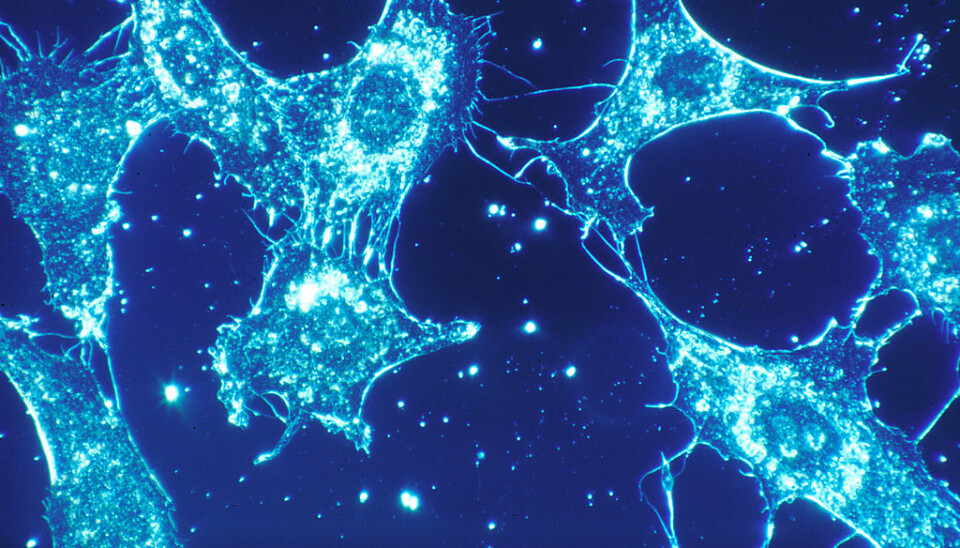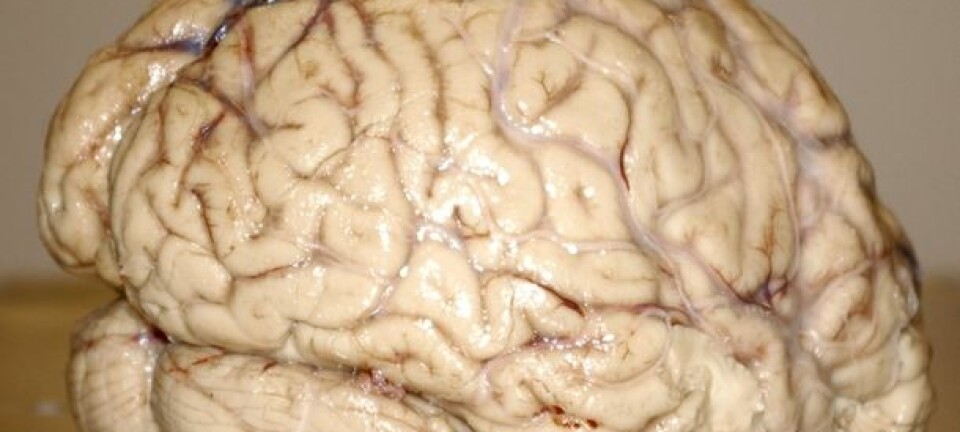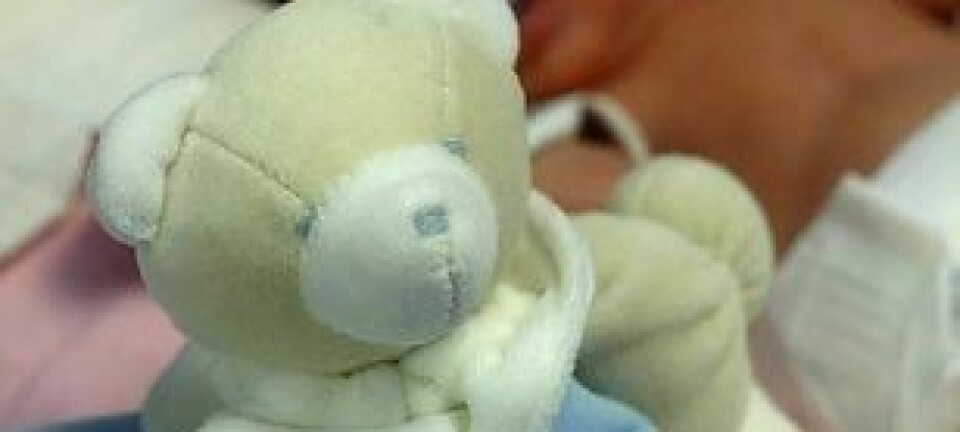
Chemical compound slows down accelerated ageing in cells
Recent findings offers a new perspective on ageing and brings hope to people suffering from neurodegenerative diseases.
A new study has found that a naturally occurring compound, NAD+, can slow down premature ageing in children suffering from rare genetic disorders such as Cockayne syndrome and xeroderma pigmentosum.
Throughout our lives our DNA is gradually damaged and our cells’ ability to divide weakens. Roughly speaking, this is what’s happening as we grow old and weak. Our cells can repair the damaged DNA but doing so drains the cell of energy, leaving it less effective and close to death.
But if the cell gets a shot of NAD+ it will use the compound instead of its own resources to make the repairs, says researchers from the National Institute on Aging, USA. When they injected the compound into cells with accelerated ageing it slowed the ageing down -- almost returning it to its normal rate.
“This is good news for children who suffer from these syndromes as there has not previously been any effective treatment to offer them,” says study co-author Morten Scheibye-Knudsen, M.D. But there’s more to it, he says. “It could also be good news for people with brain diseases such as Alzheimer’s and Parkinson’s as these diseases are also associated with damages to the DNA.”
Brain cells saved from ageing
The international team of researchers studied what happens inside the cells of children who are born with progeroid syndromes that make them rapidly age. They usually don't live longer than 10 to 12 years.
The researchers found that the premature ageing is caused by a genetic mutation which causes the repair mechanism in each cell to be constantly active, burning the chemical compound NAD+. This process gradually taps the cell’s resources, causing it to age rapidly.
When the researchers gave NAD+ to mice and roundworms that were bred with similar accelerated ageing syndromes they discovered that the compound had a positive effect on the disease.
“Giving the animals NAD+ ensured that their cells didn’t have to spend any resources producing it. This made the ageing process in the cells decelerate after a few weeks -- almost normalising it,” says Scheibye-Knudsen.
They then proceeded to test the compound’s effect on human cells in the laboratory where they observed the same beneficial results. Scheibye-Knudsen says the same is to be expected when it will be administered to living patients.
“The repair mechanisms are fundamental to the cells of every single living organism,” he says. “So we can expect the same effect to apply to humans too.”
Previous research have shown that NAD+ can reverse the ageing process in mice. However, it has yet to be confirmed if this would also work in humas.
Could help treat neurodegenerative disorders
When NAD+ was introduced to the cells it corrected a malfunction within the cells’ mitochondria, the tiny bits in our body responsible for producing energy.
The researchers behind the new study thinks it’s possible that a similar malfunction occurs in the cells of elderly people who suffers from the neurodegenerative diseases Alzheimer’s and Parkinson’s. If so, they might benefit from NAD+ as well.
“People with certain neurodegenerative diseases have increased DNA damage in their brain cells, which can mean that their brains age a little faster than they ought to,” says Scheibye-Knudsen. “One would hope that an artificial addition of NAD+ to their cells will have a beneficial effect.”
Ageing researcher Jonas Mengel-From, associate professor at the University of Southern Denmark, says the new study is good news for children suffering from premature ageing but cautions that it’s too early to say if it will help others.
“It’s an impressive study and it may very well be that NAD+ can treat other accelerated ageing disorders -- but the grounds on which to make those conclusions are still too shaky,” he says. Mengel-From was not part of the new study.
New understanding of ageing
It is still unclear precisely what mechanisms cause humans to age.
However, the answer is likely to be found in a wide range of biological factors -- and one of these could very well be that DNA repairs eats away at the cells’ resources, says Scheibye-Knudsen.
“We are approaching a fundamental understanding of the universal mechanisms behind some of these ageing processes. The burning of NAD+ could be one of them,” he says.
Mengel-From says the study provides a better understanding of mitochondria’s role in the ageing process. “This is definitely something that could benefit other areas of ageing research.”
Translated by: Iben Gøtzsche Thiele










